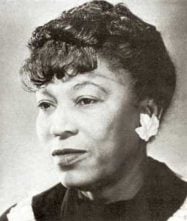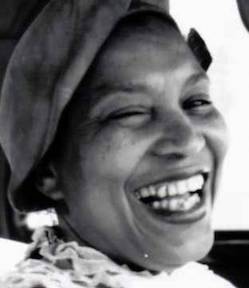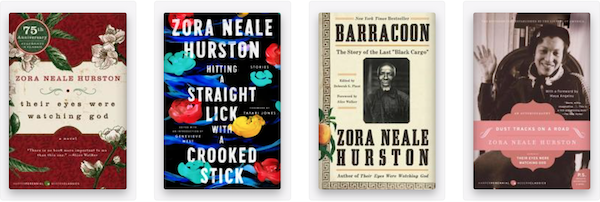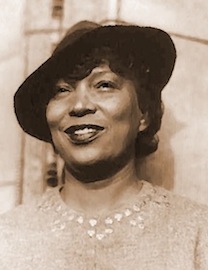What White Publishers Won’t Print by Zora Neale Hurston
By Emma Ward | On March 12, 2017 | Updated October 4, 2022 | Comments (2)

Zora Neale Hurston was an American novelist, memoirist, and folklorist. In the anthology, A Zora Neale Hurston Reader, the chapter titled “What White Publishers Won’t Print” (originally published in Negro Digest in 1950) discusses the lack of average black people appearing in literature and film.
In it she wrote about the importance of accurate portrayal of society’s marginalized groups.
In some ways this was ironic, because some African-American writers like Richard Wright criticized her for applying the “minstrel technique” to her characters and penned a scathing review of what is arguably Hurston’s best-known work, Their Eyes Were Watching God.
The need for broader representation
Still, she eloquently argued for the need for a broader range of portrayals of African-American life:
“Outside of racial attitudes, there is still another reason why this literature should exist. Literature and other arts are supposed to hold up the mirror to nature. With only the fractional ‘exceptional’ and the ‘quaint’ portrayed, a true picture of Negro life in America cannot be.”
. . . . . . . . . .

5 Quotes from “How it Feels to Be Colored Me”
. . . . . . . . . .
Educated on the outside
“A college-bred Negro still is not a person like other folks, but an interesting problem, more or less.” Hurston notes that the American public has maintained a perception of black people that is rooted in the history of slavery.
From dialogue between white slave owners who educated the black men they controlled, Hurston creates the connection that white society believed black people would resort back to their “primitive” nature no matter how much they were educated. These racist ideologies have livable consequences in modern-America.
. . . . . . . . . .
You might also like: Crazy For This Democracy
. . . . . . . . . .
Public indifference
Hurston theorized that the reason black people weren’t portrayed in mainstream media accurately if at all is present in multiple levels of American culture. She explained the role publishers played in deciding what they think will sell more based on the public’s indifference to marginalized communities beyond their stereotypical perceptions.
“But for the national welfare, it is urgent to realize that the minorities do think, and think about something other than the race problem.” Hurston called for an accurate portrayal of Black people.
Media that didn’t create a one-dimensional image. She recommended Sinclair Lewis’ Main Street and Worth Tuttle Hedden’s The Other Room as work that shows how Black people think and express themselves without creating a “exceptional” perspective:
“I have been amazed by the Anglo-Saxon’s lack of curiosity about the internal lives and emotions of the Negroes, and for that matter, any non-Anglo-Saxon peoples within our borders, above the class of unskilled labor.”
. . . . . . . . . . .

RELATED POSTS
Zora Neale Hurston Quotes and Life Lessons
I Love Myself When I Am Laughing
Crazy for this Democracy

My reading of that essay, especially in light of Hurston’s other statements, is that Hurston didn’t want to be categorized as a member of a “marginalized community”. She wanted to be as free as white writers to write about whatever she wanted to write, withing needing to “represent” anyone, so long as she was true-to-life.
Phil, I think your observation is true. Zora pointedly refused to focus on what was then called “the race problem” in her work. But then, she was rejected by many black critics for this, while at the same time not able to attract enough book sales from white audiences to sustain her career. She has certainly been vindicated, especially with Their Eyes Were Watching God, now considered a crossover feminist classic.